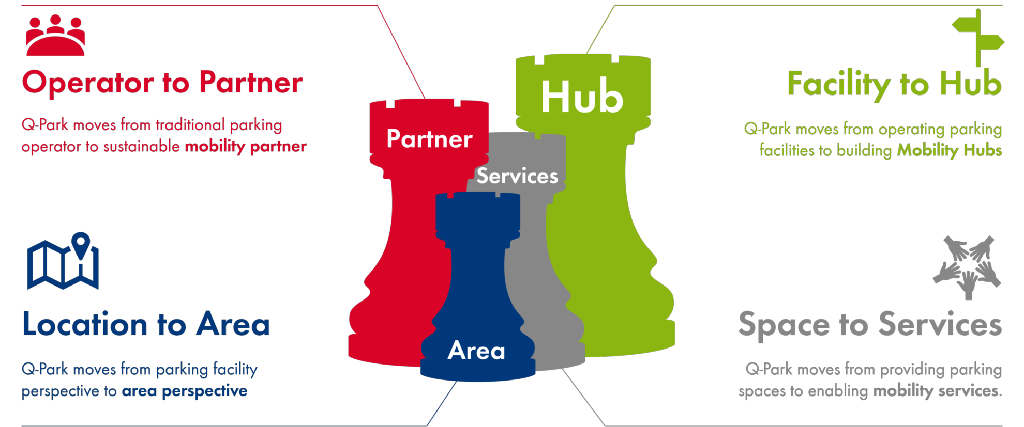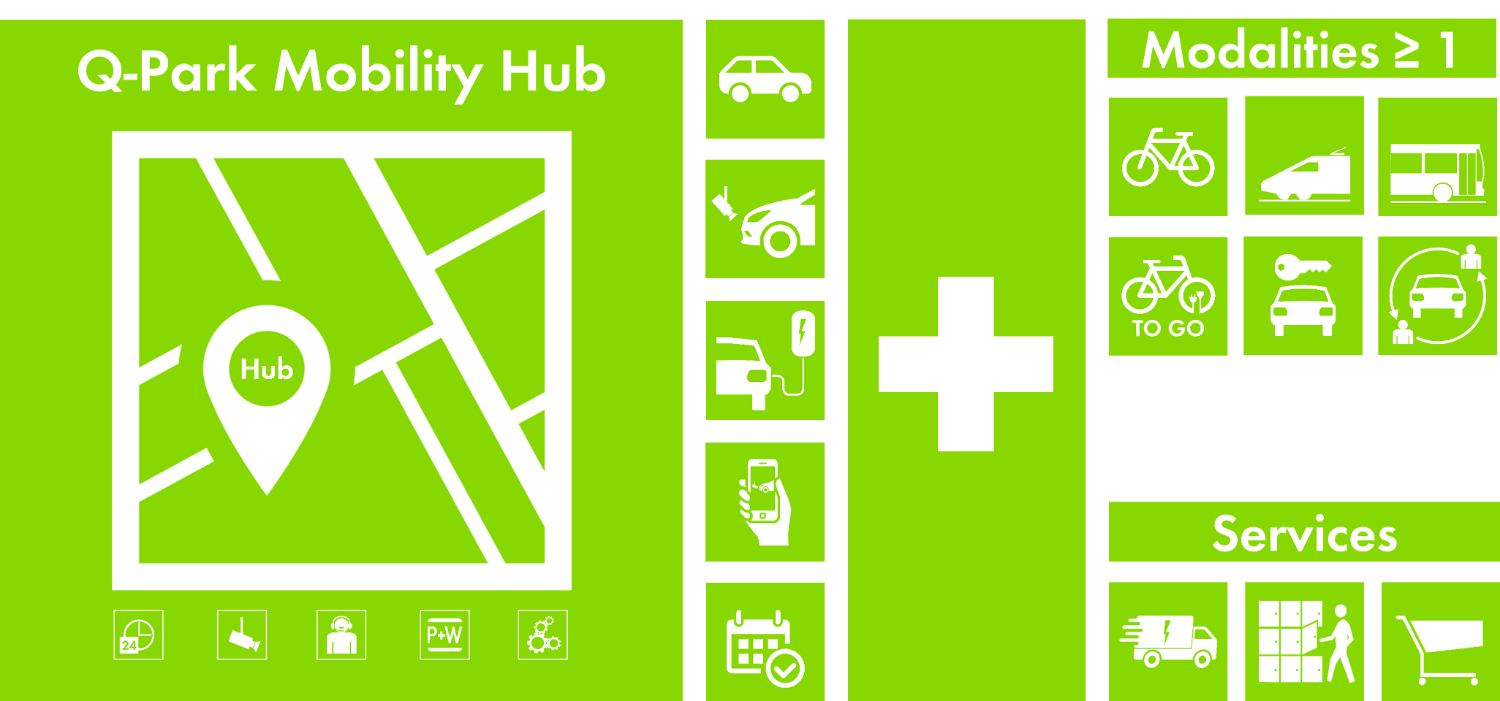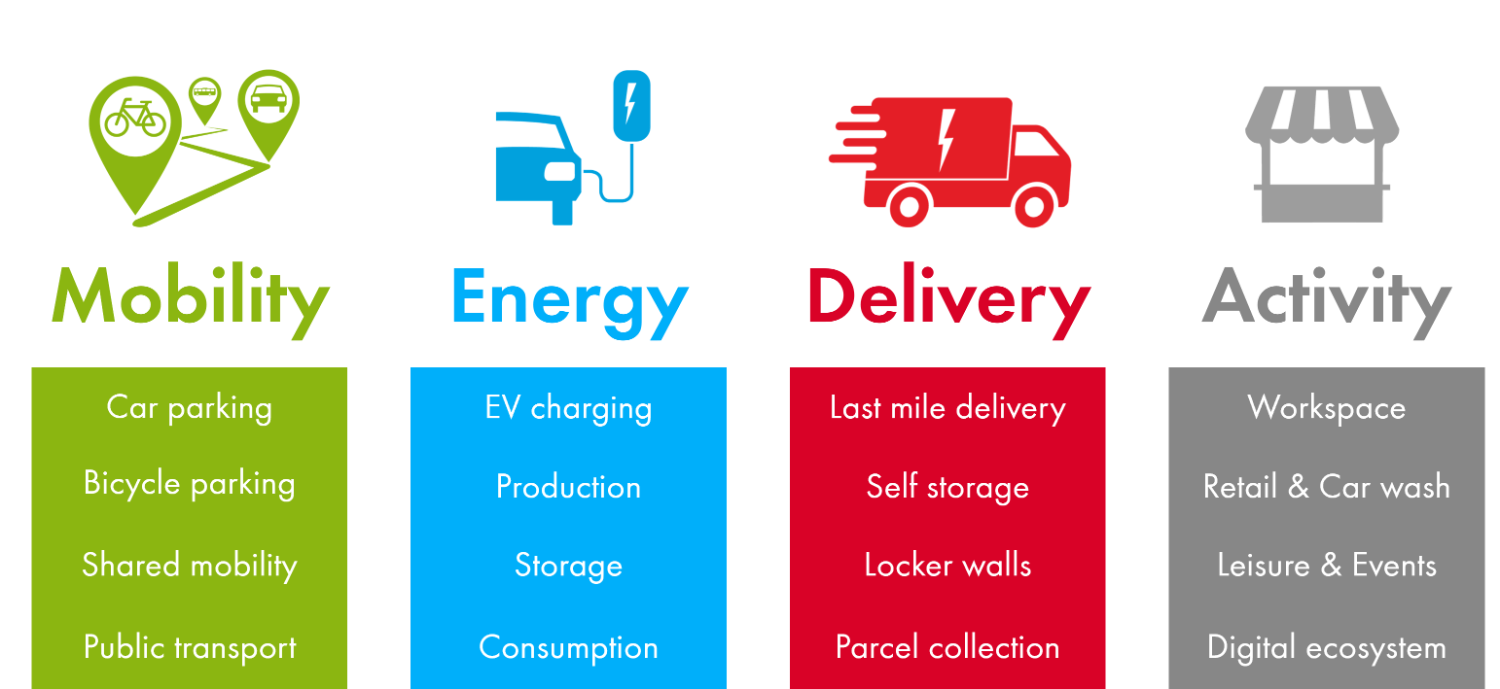SMP Programme
As Sustainable Mobility Partner (SMP), Q-Park helps municipalities to implement their sustainable urban mobility plans (SUMPs).
Key shift in sustainability agenda
Sustainable mobility planning for the wider urban area involves focusing on liveability and on individuals mobility needs rather than accomodating traffic. And as the need for sustainable mobility increases, the focus is now shifting:
from cars to people (space & greenery);
from cars to active mobility (walking & cycling);
from owned to shared (car sharing & public transport);
from fossil fuels to electrification (EV cars & EV logistics).
Sustainable mobility partner
As sustainable mobility partner, Q-Park helps municipalities by offering our in-depth knowledge and practical experience. Together with our partners we seek ways to make sustainable mobility successful.
Measures we can help introduce include:
transitioning from on-street to off-street parking;
transforming search traffic to destination traffic with smart navigation and pre-booking;
facilitating EV charging and shared mobility;
offering logistics services at the edge of the city and before low- and zero-emission zones.
Figure 13 Q-Park Sustainable Mobility Partner

Mobility hubs offer solutions
Mobility hubs help solve urban mobility challenges such as accessibility, liveability and mobility equality and, with the services provided, hubs contribute to sustainability.
Mobility hubs have become an essential link in the mobility chain.
A Q-Park Mobility Hub (QMH) is a parking facility where different modalities and services are offered for commuters, visitors and/or residents. People can interchange between car, public transport and/or shared (micro)mobility.
Figure 14 Mobility Hub model

The ideal mobility hub:
is located where different modes of transport come together, and may include bicycle parking;
enables travellers to switch between private, public transport and shared mobility, and may include rental car services and/or shared micro-mobility services;
allows access by means of ANPR, app payments, pre-booking and offers season ticket options;
provides EV charging points;
offers additional non-transport-related services such as retail, locker wall, workspace, and event opportunities.
A Q-Park Mobility Hub is open 24/7, has CCTV, is connected to the Q-Park Control Room (QCR), is at walking distance of one or more points of interests and is equipped with our digital ecosystem PaSS.
Figure 15 Mobility Hub services

Results
There are 5 proof of concepts under development, each providing us, our partners and landlords with interesting challenges and opportunities.
Netherlands, Rotterdam, Q-Park Zuidplein
Netherlands, The Hague, Q-Park Centrum
Belgium, Antwerp, Q-Park Astridplein
France, Paris, Q-Park Paris La Défense
France, Paris, Q-Park Institut Judo - Porte de Versailles
There are about 40 parking facilities in our portfolio which fit the QMH definition, spread over all the countries in which we operate.
A few of which we invite you to visit as they are exemplary of what we mean by a Q-Park Mobility Hub:
Netherlands, Amsterdam, Q-Park Museumplein
Germany, Berlin, Q-Park Alexanderplatz
France, Chambéry, Q-Park Cassine Gare
Belgium, Antwerp, Q-Park Kooldok & Q-Park Steendok
UK, London, Q-Park Park Lane
Ireland, Dublin, Q-Park The Spire
Denmark, Copenhagen, Q-Park Nørreport
